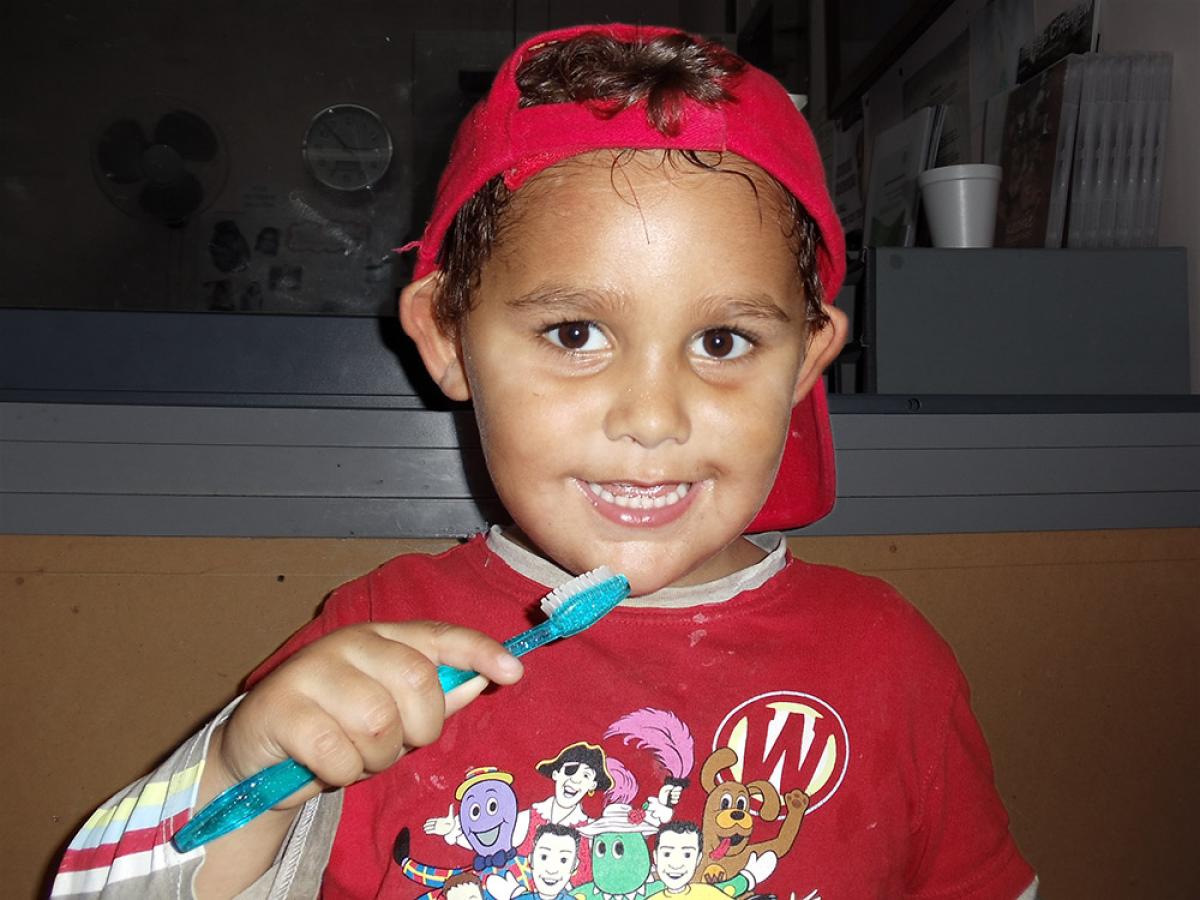South Australian Aboriginal Birth Cohort
The South Australian Aboriginal Birth Cohort (SAABC, formerly known as the Baby Teeth Talk study) was established in 2011.
Aims

- To provide direct estimates of Aboriginal child dental disease in SA compared with general population estimates.
- To determine if an intervention aiming to reduce prevalence of early childhood caries was more effective in early versus late infancy.
- To examine if these differences were sustained over time, and to document social, behavioural, cognitive, anthropometric, dietary and educational attainment throughout childhood.
The cohort
Funding was originally received in 2011 to establish the cohort (446 women pregnant with an Aboriginal child recruited during pregnancy) and to follow-up at child ages 2 and 3 years. Further funding was received to follow-up the children at age 5 years, with current funding received to follow-up the children at ages 8 and 10 years.
This prospective birth cohort study was developed in partnership with local Aboriginal communities, led by a Senior Aboriginal Researcher (Joanne Hedges) and endorsed by the study’s Aboriginal Reference Group. At baseline, 53% of mothers were aged 14–24 years and 72% had high school or less educational attainment.
Progress
At age 3 years, dental disease experience was higher among children exposed to the intervention later rather than earlier in infancy. The effect was sustained at age 5 years, but rates were still higher than general child population estimates. Experiences of racism were high among mothers, with impacts on both tooth brushing and toothache. Compared with population estimates, levels of self-efficacy and self-rated oral health of mothers at baseline were low.
